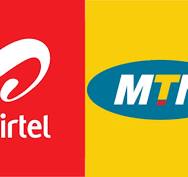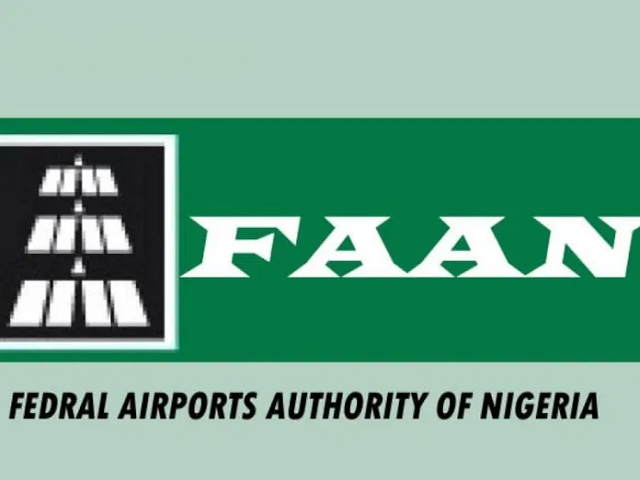A significant transformation is unfolding within the African telecommunications sector as MTN Group and Airtel Africa, two of the continent’s leading telecom operators, have initiated a strategic alliance to share network infrastructure in Uganda and Nigeria.
The primary objective of this cooperative endeavor is to broaden digital and financial accessibility across the continent, particularly in underserved rural and remote areas.
As they navigate regulatory frameworks to optimize efficiencies and expand service provision, this collaboration is poised to have substantial implications, not only for network quality and customer satisfaction but also for the financial performance of these telecom giants, their shareholders, and the broader African telecom ecosystem.
In an era increasingly shaped by connectivity and digital evolution, mobile telecom providers are facing heightened pressure to innovate and discover sustainable approaches to address the escalating demand for data services.
Ralph Mupita, CEO of MTN Group, articulated this shift by stating that MTN is “guided by the vision of delivering digital solutions that propel Africa’s progress,” and that the company continues to observe robust structural demand for digital and financial services across its operational markets.
Similarly, Sunil Taldar, CEO of Airtel Africa, emphasized that their initiative to construct shared infrastructure not only yields operational efficiencies but also mitigates the duplication of costly infrastructure investments.
These strategic maneuvers signify a definitive shift towards cooperation, competition, and financial prudence, as both companies recognize that streamlining operational inefficiencies is crucial for sustained growth in an increasingly competitive environment.
The core advantage of the MTN and Airtel Africa partnership lies in its potential to enhance cost efficiency. Network infrastructure represents one of the most significant capital expenditure (Capex) items for telecom companies.
Through network-sharing agreements, both MTN and Airtel Africa will achieve substantial reductions in their respective Capex, as they will no longer need to invest in replicating infrastructure such as towers, transmission lines, and fibre-optic cables.
This cost-sharing arrangement enables both companies to reallocate their funds towards other high-growth areas, including customer acquisition, service enhancement, and market expansion.
In practical terms, by minimizing the need for redundant infrastructure, both companies will decrease their operating expenses (Opex) associated with maintenance, upgrades, and energy consumption.
These cost savings have the potential to augment profit margins, directly impacting the bottom line. The ability to achieve these savings without compromising service quality or customer satisfaction represents a significant financial advantage for both companies.
For shareholders, this strategic initiative presents a more favorable financial outlook. MTN and Airtel Africa’s reduced expenditure on infrastructure will not only enhance their profitability but also their cash flow, which is pivotal in generating shareholder value.
More efficient capital utilization can lead to higher dividends or potentially greater reinvestment in the business, further bolstering long-term share value.
Beyond cost savings, the sharing of infrastructure facilitates the rapid expansion of coverage for both companies, particularly in rural and remote regions where the construction of new infrastructure is prohibitively expensive.
This expansion is essential for MTN and Airtel Africa to increase their customer base, both by improving service for existing customers and by attracting new ones. By providing more reliable and extensive coverage, they are likely to capture a larger share of the African telecom market, which is still experiencing substantial growth, especially in digital and financial services.
For instance, in regions such as Nigeria and Uganda, where network quality is inconsistent, this partnership will ensure that customers gain access to faster, more reliable services.
This enhanced network quality will not only strengthen customer loyalty but also elevate the attractiveness of both MTN and Airtel Africa’s service offerings in an increasingly digital-centric economy.
Consequently, both companies are well-positioned to expand their revenue-generating services, including mobile money, data plans, and other value-added services, further boosting their revenue streams.
From a financial perspective, the long-term value creation resulting from these infrastructure-sharing agreements is substantial.
Both companies are adopting a strategic approach to enhance their value proposition to shareholders, not only by streamlining operational inefficiencies but also by positioning themselves for growth in key emerging markets.
As the African mobile market evolves, MTN and Airtel Africa’s ability to deliver cost-effective, high-quality services in underserved regions will establish them as market leaders, enabling them to capitalize on new revenue streams.
Furthermore, these network-sharing agreements serve as a safeguard against future regulatory or competitive pressures.
By adhering to local regulatory frameworks and collaborating with local operators, both MTN and Airtel Africa reinforce their regulatory standing, potentially enhancing their long-term sustainability.
This has a stabilizing effect on their financial performance, reassuring investors and ensuring that both companies are perceived as solid investments.
In addition to the financial benefits, this collaboration opens up new avenues for innovation. As Mupita and Taldar emphasized, the sharing of infrastructure does not stifle competition; rather, it redirects it.
Both companies will continue to operate as independent market entities, offering differentiated services. By sharing the burden of infrastructure development, they can concentrate their resources on innovative services, such as mobile payments, financial services, and digital platforms that drive customer engagement.
Moreover, sustainability is becoming an increasingly significant focus in the telecom industry. By sharing infrastructure, MTN and Airtel Africa reduce their carbon footprint, a crucial factor in today’s environmentally conscious business landscape. Such initiatives resonate with increasingly sustainability-focused investors, who seek companies that not only generate financial returns but also contribute positively to global sustainability goals.
While the initial agreements between MTN and Airtel Africa are focused on Uganda and Nigeria, the potential for further collaboration in other African markets, such as Congo-Brazzaville, Rwanda, and Zambia, is being considered.
This strategic expansion will further solidify their dominance on the continent, yielding mutual benefits while mitigating risks associated with infrastructure investments in regions with lower returns on capital. The partnership also catalyzes broader industry-wide changes in the African telecom sector, with smaller operators potentially following suit.
As the continent’s telecom infrastructure matures, we may witness more cross-operator collaborations, driving further efficiencies and cost savings. As the telecommunications landscape in Africa evolves, this partnership will likely be a defining moment for both companies, setting the stage for long-term growth and value creation while advancing the digital and financial inclusion agenda across the continent.













